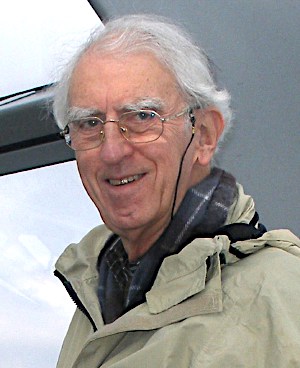Message for Apollo 11 40th anniversary at Honeysuckle Creek
I was kindly invited to be with you today but had already committed to a parallel celebratory function in Sydney with many members of ABC programming and technical staff who worked on the Apollo programs, timed to coincide with the time of the first moon walk.
A significant part of my life in broadcasting was devoted to bringing the dramas of the Apollo missions, minute-by-minute, second-by-second, to a large audiences of Australians nationwide and internationally through Radio Australia. From relatively small beginnings with Apollos 8 and 9 we extended our sources of original audio with Apollo 10 and further still with Apollo 11 when we mounted probably the most complex “live” broadcasts in ABC experience at the time. While the TV links ultimately took centre-stage, and rightly so, radio provided a flexibility, depth and extent that TV could not rival. With the experience of Apollo 11 under our belt, radio became king of media coverage of the near-disaster with Apollo 13.
For making all this possible I pay tribute to the magnificent and ever-reliable service by the technical expertise of NASA, the then PMG’s Department and other Australians who worked at the key nodes of our “live” umbilical links to Mission Control and via them to the astronauts. For example, our 24-hours-a-day access to the Voice of Apollo circuit, together with detailed flight plans in hand, enabled us to cross out of the ABC's regular programs to our dedicated “Apollo Studio” in Sydney at a moment’s notice in order to capture and broadcast key stages of the drama and to foreshadow accurately what was coming up next. We broadcast right through the night preceding the moon landing at 6.17 am, 21 July Australian Eastern Time and were not caught short when Neil Armstrong decided to start the moon walk several hours earlier than in the flight plan.
While we had a panel of scientific experts in the studio for providing contextual commentary on every conceivable aspect of the technology and scientific and medical aspects, we also needed to bring others in by telephone links. I gather that one of our panel, the distinguished Professor of Geology John Lovering is with you today. As we say in our trade, John was “great talent”.
In those days, “talk-back” radio had barely surfaced as a popular medium but when a station wanted to interview someone “live” to air a seven-second delay had to be interspersed between the start of an interview and its broadcast to enable dropping of any profanity or perjury that might be uttered by a distant party. This would have been impossible for us when the rapid action in space had already moved on and, once TV pictures became available which had no such restriction, we had to broadcast simultaneously or not at all. Our case was accepted and there were no delays on our telephoned commentaries. I gather that our use of the telephone was a “first” in Australian radio.
In terms of broadcast durations, ABC radio outstripped TV, both ABC and commercial, by a factor of several times. I believe, too, that, being a more imaginative medium, our radio coverage engendered countless imaginary journeys through space to the moon. For making this possible, once again I pay tribute to all of you, the technical wizards, for the critical Australian contributions to the Apollo broadcasts.
Peter
